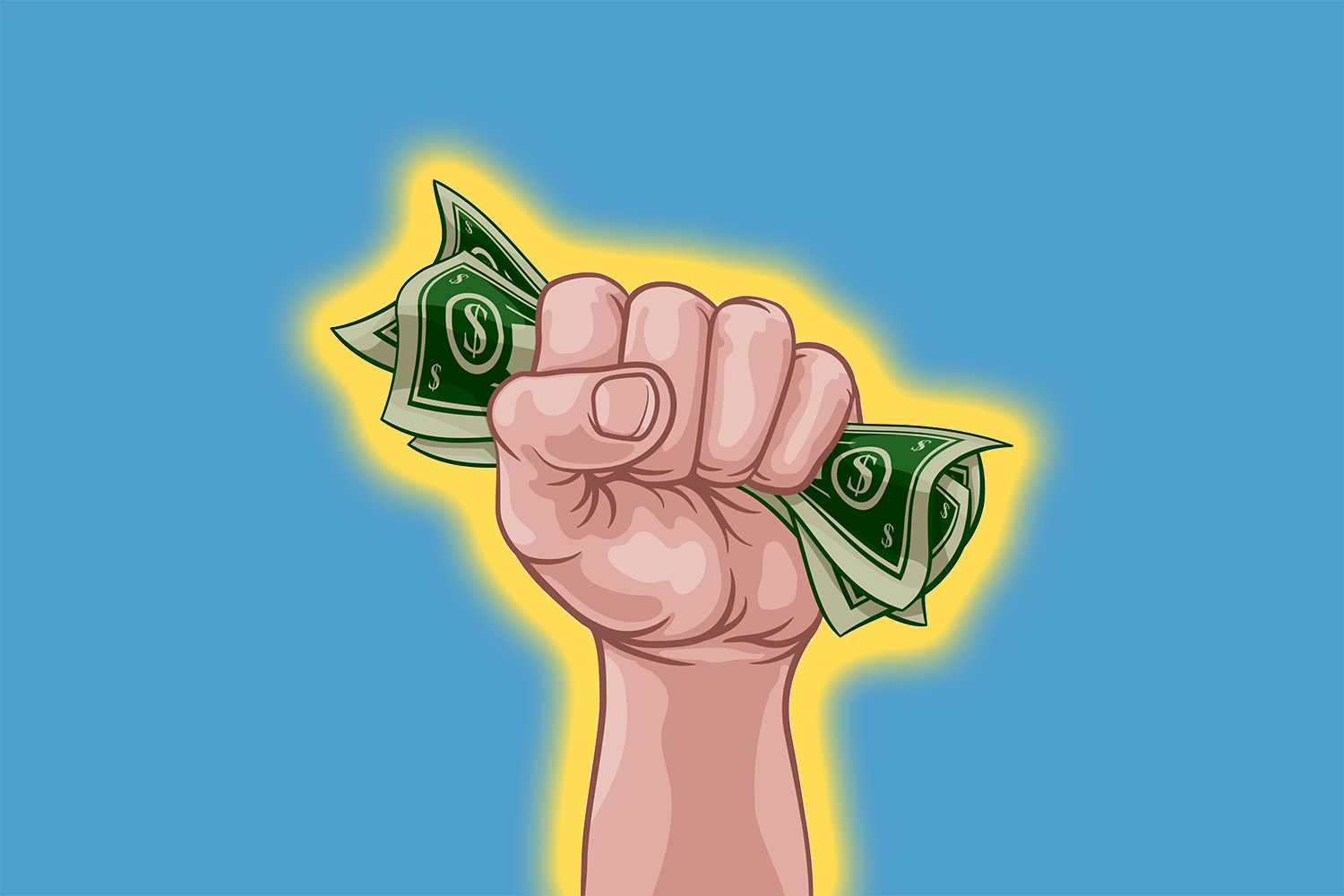Table of contents
Getting a 0% interest loan may seem harmless and simple. But here’s the thing: whether it’s 20% or 0% interest, borrowing money restricts your income. The more you use your money to pay off debts, the less freedom you have with your finances. It might be tempting to stretch out the payments, but it’s essential to consider the overall situation.
Although, there are advantages and disadvantages when you pay off your loan immediately. You have to be cautious and aim for true financial independence by staying mindful of the impact financing has on your income.

© Can Stock Photo / Krisdog
Pros
Financial Independence
Financial independence is a dream for many individuals and families. What can help with that? Having one less monthly cost and financial obligation to stress over. You experience a sense of relief, freeing up your mental and emotional energy.
If you can comfortably repay the loan, the psychological benefits of being debt-free can outweigh the more practical advantages. A sense of relief and peace comes with not owing money to anyone. It opens up new possibilities for your financial future.
Less Interest Paid
Paying off a 0% interest loan earlier than planned prevents potential interest charges if loan terms change in the future. It’s a smart move to protect yourself and keep more money in your pocket.
Consider obtaining student loan refinancing by SoFi. It can help you eliminate student loan problems at a reasonable interest rate to achieve financial freedom. You can utilize the money you have saved for other investments.
Improve Credit Score
Paying off your 0% loan earlier than expected can significantly affect your credit score. It shows you’re responsible for your finances, positively impacting your credit report.
A strong credit score helps when buying a car, renovating a home, or starting a business, securing better loan opportunities. It opens doors to getting lower interest rates on various types of personal loans. By being proactive and paying off your loan early, you’re setting yourself up for better borrowing opportunities in the future.
Building a good credit history is crucial, especially in the US. You’ll need a clean record to have a good credit history to apply for loans in the future. Choose a bank that provides cash back whenever you want to obtain a credit card. Make sure to pay your balance every month to maintain a good record.
Cons
Emergency Funds
It’s a good idea to set aside funds for unexpected expenses. However, you might need a new loan if you’ve paid off your 0% loan but encountered an unexpected expense. That new loan will most likely come with an interest rate, unlike the 0% rate you just finished paying off.
Be prepared with an emergency fund to avoid depending on new loans with unfavorable terms. You have to make sure to balance saving and paying off your debt. Develop good money habits to avoid borrowing money for emergency purposes.
Opportunity cost
Paying off the loan may limit your ability to invest in higher-return opportunities, so consider the trade-off carefully. Evaluate potential investment returns before paying off the loan to decide if it’s wiser to invest instead. It’s all about finding the right balance and making informed financial decisions based on your circumstances and goals.
The Bottom Line
Paying off your loan ahead of schedule comes with its pros and cons. On the one hand, it can bring you the sought-after financial independence you’ve always dreamed of. However, there are downsides to consider when immediately paying off your 0% interest loan. It could reduce the amount of money available for building your emergency funds.
It’s essential to weigh these factors before making a decision. Make sure you balance the pros and cons to avoid financial problems.
